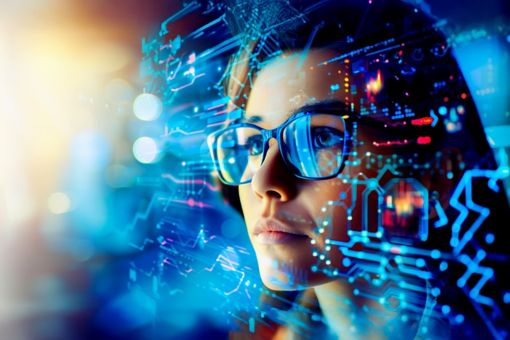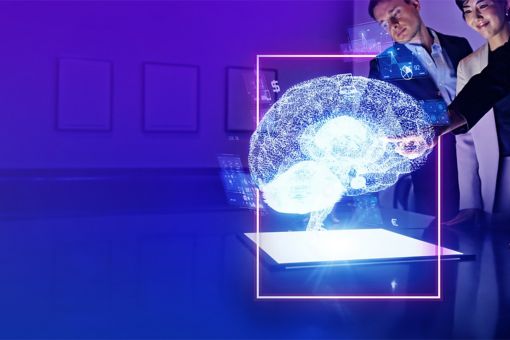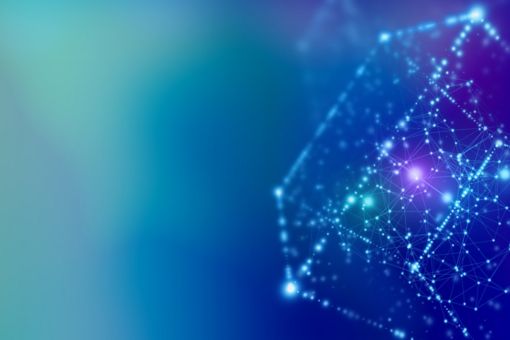Transforming workforce models: From hierarchy to agility
KPMG offers comprehensive support through People & Change Consulting practice, empowering companies to redefine their workforce models with the AI Workforce Opportunity Assessment Tool. In today's knowledge-based economy, reimagining traditional workforce structures means moving away from rigid job roles and hierarchical management to encourage innovation, boost morale, and enhance efficiency. Modern businesses must cultivate high-performing, agile teams that prioritize collaboration over hierarchy.
KPMG's approach deconstructs jobs to identify essential skills for future success, enabling companies to optimize human and technological resources. This transformation encourages reassessing roles, focusing on coaching and continuous development. As a result, organizations can boost productivity while minimizing resource use.
By embracing workforce transformation, businesses can improve resource allocation, enhance employee experiences, and secure sustainable growth. This approach underscores the importance of upskilling and reskilling employees to keep pace with technological advancements, such as generative AI. Addressing skill gaps and aligning workforce capabilities with strategic business needs ensures that companies remain competitive in a rapidly evolving landscape.
With KPMG's assistance, organizations can navigate these changes confidently, ensuring their workforce is equipped for future challenges and opportunities.
Unlock the full potential of generative AI in your workforce
Organizations today are faced with the challenge of helping their workforce adapt to an increasingly digital and AI-driven world. Implementing AI without considering the people at the heart of the organization is a recipe for resistance, low adoption rates, and wasted resources. Instead of viewing GenAI as a technology implementation, focus on AI adoption and upskilling to get a higher return on the investment.
A people-first mindset is the foundation for a successful AI implementation and requires addressing workforce reshaping in tandem with AI adoption. As people move into new roles, and ways of thinking and working, they will need training and upskilling as their everyday work changes. At the same time, it is critical to address fear and uncertainty about job loss by reinforcing the message that people won’t be replaced by AI.
Taking a holistic approach means driving AI adoption at all levels of the organization, while building awareness, understanding, and commitment to infusing GenAI into daily work. Development of customized, persona-based experiences can inspire and motivate employees to embrace GenAI. In this way, organizations empower the workforce to fully leverage AI tools and new ways of working.
The employee experience can be enhanced as AI unlocks significant capacity gains and productivity improvements. By identifying and augmenting previously hard-to-automate tasks with GenAI, organizations can realize worker capacity gain. The time freed up by using AI for rote tasks can be spent on more interesting, creative, and valuable work—or aligned to new business strategies
KPMG understands how critical it is to address the human-centric aspects of AI adoption. As workplace models and technological advancements continue to evolve, KPMG’s AI Workforce methodology can help businesses navigate their way to an AI-forward future.
With AI Workforce, KPMG can help your organization tackle the most pressing questions organizations face today:
- How can employees overcome apprehension and smoothly adapt to AI tools in their daily tasks?
- How can we empower and upskill our workforce to thrive with AI technologies?
- Which roles or functions should be prioritized to leverage AI effectively?
- How can we maximize ROI from GenAI investments?
What is AI Workforce?
AI Workforce is the KPMG solution to support and enabled workforces with GenAI technologies. This approach transcends traditional technology implementation and includes a deep dive into the human elements of your enterprise. The workforce today is a dynamic amalgamation of individual talent, automation, outsourcing, and contingent labor. To fully leverage your GenAI investment, it is crucial to focus on reengineering these roles and ensuring they work seamlessly together.
Our approach can be tailored to your organization’s needs. However, most organizations start with a Workforce Opportunity Assessment. Using our Workforce Data Model, we conduct a detailed assessment of an organization's job data to uncover functions and roles ready for GenAI enhancement. Our proprietary database allows us to help identify GenAI implementation opportunities based on existing job architectures and role profiles within your organization. As these tools and methods are designed to be human-centric, organizations are assured that their technology advancements are not just implemented, but also enthusiastically adopted and activated.
AI Workforce can play a critical role in organizations’ efforts to help reshape roles, enhance collaboration, and cultivate a culture that prioritizes positive employee experiences. Our work with companies focuses on critical business areas such as supply chain, procurement, finance, HR, IT, sales, M&A, risk, cyber, and more. With AI Workforce, organizations can unlock new efficiencies, drive sustainable growth, and achieve a future-ready enterprise.
Experience the impact of AI Workforce
Amplify productivity
Increase the capacity of your knowledge workers to innovate and create new products and services.
Drive profitability
Make informed, data-driven decisions to allocate resources efficiently and optimize your workforce.
Enhance quality and experiences
Improve job satisfaction and customer experiences by elevating the quality of work.
Our approach
KPMG's AI Workforce comprises a human-centered, three-step strategy to help maximize the value of AI investments. Through these steps, KPMG helps organizations unlock significant value from their AI investments, placing humans at the core of transformation.
- Identify opportunities: This focuses on uncovering the potential of GenAI augmentation for roles across the organization. It allows organizations to start their GenAI investment journey with "no regret" initiatives, assessing the workforce to identify key opportunities to transform tasks and roles. Organizations conduct both a quick scan and a detailed analysis of roles and tasks, such as what finance managers do and the extent GenAI is applicable to their daily activities
- Augment the workforce: This is when KPMG helps organizations focus on designing new roles and upskilling workers while driving adoption. This innovative adoption program involves a human-centered redesign of jobs to maximize AI's impact. This is also when organizations focus on data handling, security, and compliance. Ultimately, adoption and upskilling will be customized by role and level, while teams also measure progress to ensure learning effectiveness.
- Reshape the workforce: Once the augmented capacity potential has been realized, organizations transition to start to capture the value of their initial GenAI investments. This involves modifying the organization’s operating model, which can have an impact on team structure and corporate culture. Reshaping the organization to better align with the future business strategy and defining AI governance can help the organization realize the full potential of AI investments. This ensures that time saved through AI adoption is redirected toward strategic tasks, as opposed to non-value-added activities.
Why KPMG
KPMG is uniquely positioned to assist organizations with enterprise-wide AI transformation as it intersects with workforce transformation. Our human-centric offerings allow us to successfully augment organizations’ workforce while building new capabilities and inspiring employees to infuse AI into their everyday work. We guide organizations in thinking holistically about AI adoption, thereby increasing potential ROI and time to value. With our global reach and scale, organizations have access to our 273,000 professionals in 142 countries, as well as our vast alliance partnerships, including Microsoft and ServiceNow. As early adopters and market leaders in AI, our work for clients is informed and validated by our own AI transformation journey.




